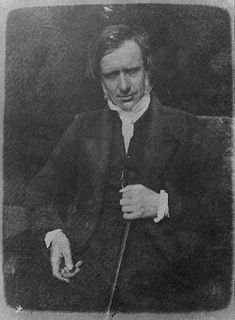A Quote by Charles Spurgeon
Conversion is not, as some suppose, a violent opening of the heart by grace, in which will, reason and judgment are all ignored or crushed. The season is not blinded, but enlightened; and the whole man is made to act with a glorious liberty which it never knew till it fell under the restraints of grace.
Related Quotes
Since I have an aversion to movies in which people say grace at the dinner table (not to the practice but to how movies use it to establish the moral strength of a household), the opening night montage of Sunday-night supper in one home after another in Waxahachie, Texas in 1935 - a whole community saying grace made me expect the worst.
It is grace at the beginning, and grace at the end. So that when you and I come to lie upon our death beds, the one thing that should comfort and help and strengthen us there is the thing that helped us in the beginning. Not what we have been, not what we have done, but the Grace of God in Jesus Christ our Lord. The Christian life starts with grace, it must continue with grace, it ends with grace. Grace wondrous grace. By the grace of God I am what I am. Yet not I, but the Grace of God which was with me.
The reason that we have both good and wicked thoughts together is not, as some suppose, because the Holy Spirit and the devil dwell together in our intellect, but because we have not yet consciously experienced the goodness of the Lord. As I have said before, grace at first conceals its presence in those who have been baptized, waiting to see which way the soul inclines; but when the whole man has turned toward the Lord, it then reveals to the heart its presence there with a feeling words cannot express.
Augustine said that we were all born into the world of "common grace" [i.e., available to all]. Before one is baptized, or even if one never is, such grace meets one in God's creation. There is grace in the pear tree that blooms and blushes. There is common grace in the sea (that massive cleanliness which we are proceeding to corrupt), in the fact that there was, before we laid hands on it, clean air. Our task is to appreciate that grace.
All the natural movements of the soul are controlled by laws analogous to those of physical gravity. Grace is the only exception. Grace fills empty spaces, but it can only enter where there is a void to receive it, and it is grace itself which makes this void. The imagination is continually at work filling up all the fissures through which grace might pass.
And just as there are no crimes so detestable that they can prevent the gift of grace, so too there can be no works so eminent that they are owed in condign [deserved] judgment that which is given freely. Would it not be a debasement of redemption in Christ’s blood, and would not God’s mercy be made secondary to human works, if justification, which is through grace, were owed in view of preceding merits, so that it were not the gift of a Donor, but the wages of a laborer?
Lower the Law and you dim the light by which man perceives his guilt; this is a very serious loss to the sinner rather than a gain; for it lessens the likelihood of his conviction and conversion. I say you have deprived the gospel of its ablest auxiliary [its most powerful weapon] when you have set aside the Law. You have taken away from it the schoolmaster that is to bring men to Christ . . . They will never accept grace till they tremble before a just and holy Law. Therefore the Law serves a most necessary purpose, and it must not be removed from its place.
If a person has grasped the meaning of God's grace in his heart, he will do justice. If he doesn't live justly, then he may say with his lips that he is grateful for God's grace, but in his heart he is far from him. If he doesn't care about the poor, it reveals that at best he doesn't understand the grace he has experienced, and at worst he has not really encountered the saving mercy of God. Grace should make you just.



































